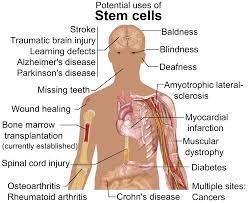
A disturbing trend in cardiac randomized controlled trial (RCT) reporting in recent years is when negative study results are “spun” to sound positive. One spin strategy is focusing on statistically significant secondary results when the primary outcome is non-significant. According to a recent review, 57% of abstracts and 67% of cardiovascular articles put a positive spin on statistically non-significant primary outcomes. (Medpage Today)


 In 1997 the U.S. Food and Drug Administration Modernization Act stipulated that the FDA may consider data from just one clinical investigation to approve a new drug. Of 59 novel drugs approved in 2018, 42% (25) were approved on the basis of only one trial. A large proportion of the drugs relying on only one trial were new orphan and cancer drugs. (Regulatory Focus)
In 1997 the U.S. Food and Drug Administration Modernization Act stipulated that the FDA may consider data from just one clinical investigation to approve a new drug. Of 59 novel drugs approved in 2018, 42% (25) were approved on the basis of only one trial. A large proportion of the drugs relying on only one trial were new orphan and cancer drugs. (Regulatory Focus)
 In a recent survey, about one-third of clinical research professionals said that the technology systems they use are not intuitive or easy to access, and two-thirds said that automated sharing between systems is not reducing duplicate data entry. Fewer than half agreed that their organization has a training program that sets them up for success. (ACRP)
In a recent survey, about one-third of clinical research professionals said that the technology systems they use are not intuitive or easy to access, and two-thirds said that automated sharing between systems is not reducing duplicate data entry. Fewer than half agreed that their organization has a training program that sets them up for success. (ACRP) Novartis was recently inspected and cited with an Official Action Indicated (OAI) as part of their new drug application for their recently approved multiple sclerosis drug Mayzent (siponimod). In one study protocol, blinding was not adequately maintained, and study personnel were given inappropriate access to the database, raising questions as to whether inappropriate access to information led to bias. (Regulatory Focus)
Novartis was recently inspected and cited with an Official Action Indicated (OAI) as part of their new drug application for their recently approved multiple sclerosis drug Mayzent (siponimod). In one study protocol, blinding was not adequately maintained, and study personnel were given inappropriate access to the database, raising questions as to whether inappropriate access to information led to bias. (Regulatory Focus) Cell and gene therapies are entering the clinical space. There are currently more than 2,900 registered clinical trials in gene therapy, and nearly 1,000 more gene therapy clinical trials currently enrolling human research participants. There are almost 300 ongoing Phase III trials in gene therapy. Genetic engineering is also enabling growth of the pharmaceutical therapy. (BioPharma-reporter.com)
Cell and gene therapies are entering the clinical space. There are currently more than 2,900 registered clinical trials in gene therapy, and nearly 1,000 more gene therapy clinical trials currently enrolling human research participants. There are almost 300 ongoing Phase III trials in gene therapy. Genetic engineering is also enabling growth of the pharmaceutical therapy. (BioPharma-reporter.com) The author argues that, in the FDA drug approval process, manufacturers have a strong motivation to promote the effectiveness of their drug, while downplaying the risks. This is called “the funding effect”- when scientists are hired by a firm with a financial interest in the outcome, then the likelihood that the results will be favorable to that firm is dramatically increased. (Bill of Health)
The author argues that, in the FDA drug approval process, manufacturers have a strong motivation to promote the effectiveness of their drug, while downplaying the risks. This is called “the funding effect”- when scientists are hired by a firm with a financial interest in the outcome, then the likelihood that the results will be favorable to that firm is dramatically increased. (Bill of Health)